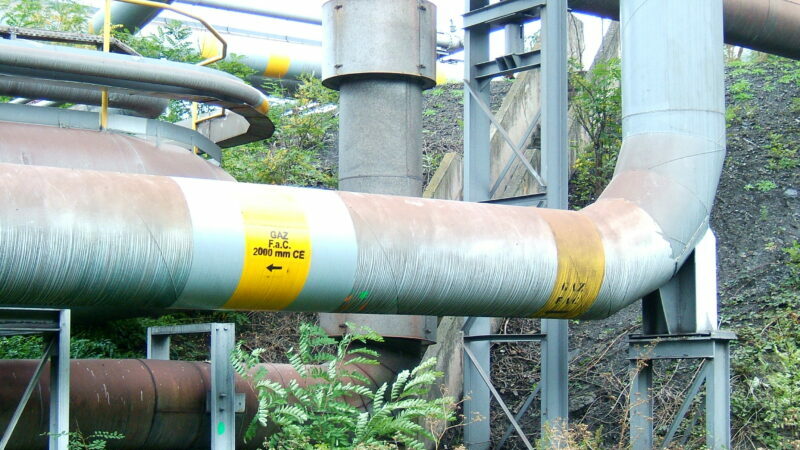The European Union is considering imposing binding methane emissions standards on oil and gas imports, as well as making fossil fuel companies report and repair methane leaks.
In its methane strategy published on Wednesday, the European Commission declared a commitment to tackling emissions from methane, which is the second-largest contributor to global warming after carbon dioxide.
“The Commission will examine options as regards possible methane emission reduction targets or standards or other incentives on fossil energy consumed and imported in the EU in the absence of significant commitments from international partners,” the strategy states.
EU standards would put pressure on suppliers like Russia, Algeria and Gulf states to take methane emissions seriously. That could significantly impact global methane emissions, as the EU is the world’s largest importer of fossil gas.
Methane, which is released into the atmosphere from abandoned coal mines, farming and leaky oil and gas pipes, has a global warming impact 84 times higher than CO2 over a 20-year period.
The Commission said it planned to introduce legislation requiring oil and gas companies to report methane emissions and repair leaks. It will consider banning flaring and venting, which involve burning methane or directly releasing the potent gas into the atmosphere.
“The Commission will deliver legislative proposals in 2021 on compulsory measurement, reporting, and verification for all energy-related methane emissions and on an obligation to improve leak detection and repair of leaks on all fossil gas infrastructure,” a statement read.
The oil and gas industry could achieve a 75% reduction in methane emissions by 2030 using current technology, according to the International Energy Agency.
Methane emissions are rising rapidly, with new satellite data from technology company Kayrros revealing that large leaks have increased by 32% in the past year. According to Kayrros, there are around 100 high-volume leaks happening around the world at any one time. Half of these methane hotspots occur in regions with coal mining and oil and gas industries. One of the worst culprits is Russia – Europe’s largest supplier of natural gas.
EU energy commissioner Kadri Simson tweeted a map of the findings, saying it “shows what we want to fix with #MethaneStrategy”.
https://twitter.com/KadriSimson/status/1316074283299414017
Slashing methane emissions is critical to the EU’s climate ambition and its goal to reach net zero by 2050. The EU has a target to reduce greenhouse gases 40% from 1990 levels by 2030, with internal negotiations ongoing to deepen those cuts. In line with this, methane emissions will need to be reduced by around 35% compared to 2005, according to the Commission’s 2030 climate plan.
Analysis: Where are US emissions after four years of President Trump?
A failure to do so would undermine the EU’s Paris Agreement commitments, Katalin Cseh, Hungarian MEP for Renew Europe, told Climate Home.
Cseh described the EU methane strategy as “a promising step in the right direction” but said it was disappointing that binding targets and standards only remained under consideration. She added that a lack of data and uniform monitoring had hindered opportunities to reduce methane emissions to date.
Jutta Paulus, a German MEP for the European Green Party, said in a statement the strategy did not go far enough: “The European Commission only scratches the surface and limits itself to minor issues like plugging methane leaks and statistics. Counting emissions does not help when the order of the day is to reduce them.”
The EU produces 5% of global methane emissions internally but as the world’s largest importer of gas it plays a major role in influencing the climate policies of other countries, the strategy notes.
The EU imports around 47% of internationally traded gas, Poppy Kalesi, director of global energy at the Environmental Defense Fund, told Climate Home. Companies including Shell and BP have set voluntary targets to curb methane emissions, but legislative action is needed to achieve global reductions, according to Kalesi.
“Setting a mandatory methane performance standard can catalyse constructive collaboration between the EU and supplier countries by making it easy on large European gas buyers to apply pressure on their suppliers to credibly engage with their methane emissions,” Kalesi said.
